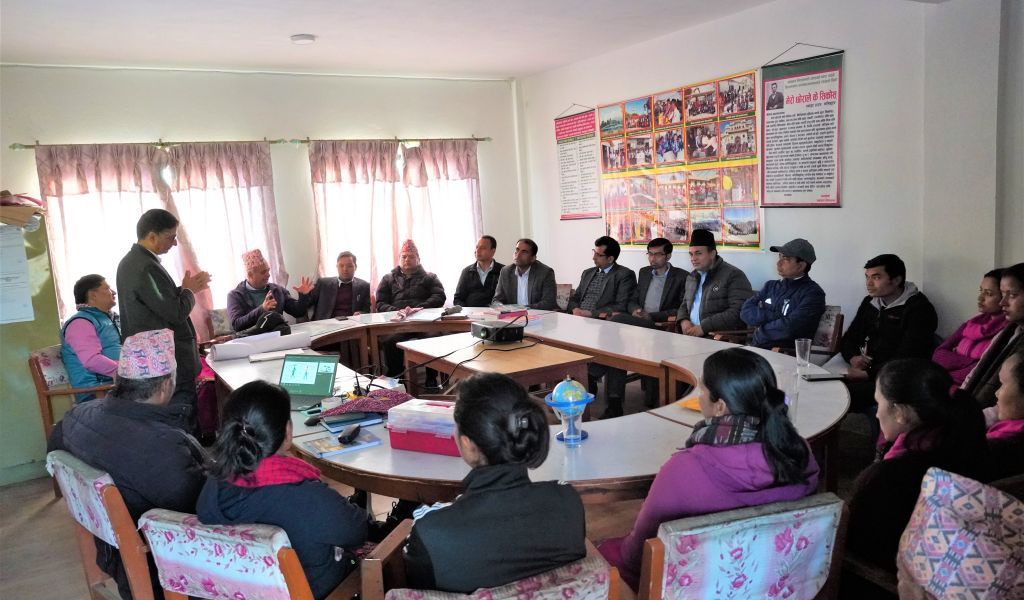Gender in academia: promoting gender equality in schools

A total of 24 teachers and 25 students participated in the orientation conducted at Shree Gyan Mandir Namuna Secondary School. Teachers and students discussed ways to promote gender equality throughout the education system including issues related to educational content, and the context and practices of teaching and learning.
Promoting gender equality in high schools is a first step towards ensuring all students are free to pursue their education without fear of gender discrimination. Women often face discrimination in education, which affects access, completion, learning outcomes and career choices. Gender stereotypes in curricula, textbooks and teaching processes; violence inside and outside school; structural and ideological constraints; and male dominance in academic and professional fields are still prevalent.
The Gender in Academia sessions encourage secondary students and teachers to promote gender equality at school.
“Teachers are important starting points for promoting gender equality, as their attitudes and instructional practices are known to influence students’ motivation and performance substantially,” said Principal Punya Prasad Gajurel.
“To promote gender equality in educational settings, teachers have to reflect on their own gender stereotypes for which they require knowledge about gender. So we always welcome such events at our school and are committed to ensuring gender equality in and through education.”
The teachers and students who participated in the training session noted that they recognize and value differences and similarities between gender and sex. They also spent time discussing gender roles and norms, overcoming stereotypes and prejudices, social constructs and socialization processes.
During the session, students shared their day-to-day activities and learned about gender expectations and socialization that contribute to gender inequalities. “I have time to study only after finishing domestic chores while my brother always has time to study during exams,” said Sabina Dangal, a student at Shree Gyan Mandir Namuna Secondary School. “Such discrimination begins at home – something that we were unaware of before this orientation. This training is effective in altering students’ mindset at the secondary-school level.”
Participating teachers were encouraged to continue building the capacity of students and teachers to promote gender equality. The teachers also stressed that the school needs to create an environment where gender-related issues can be raised and discussed. The school also committed to: prepare a gender code of conduct; establish a mechanism for redressing grievances within the school; and endorse gender-related elective courses in the school curriculum in collaboration with Chautara Sangachowkgadi Municipality of Sindupalchowk District.
Despite the growing interest in gender equality in education, little attention has been given to high school students as a potential point for intervention. Moreover, gender stereotypes are rarely dealt with in general teacher education and training programs. Against this backdrop, RECOFTC Nepal’s efforts to integrate gender as a cross-cutting issue in schools help develop students’ and teachers’ potential unencumbered by gender stereotypes.

